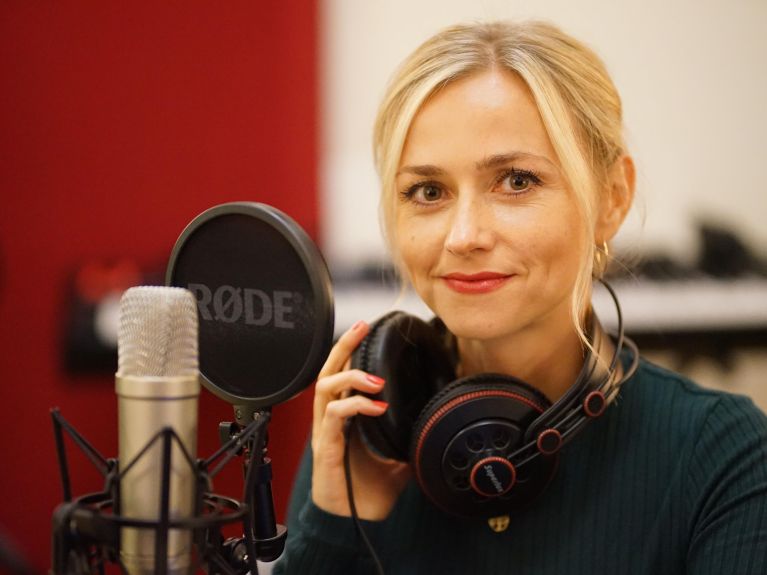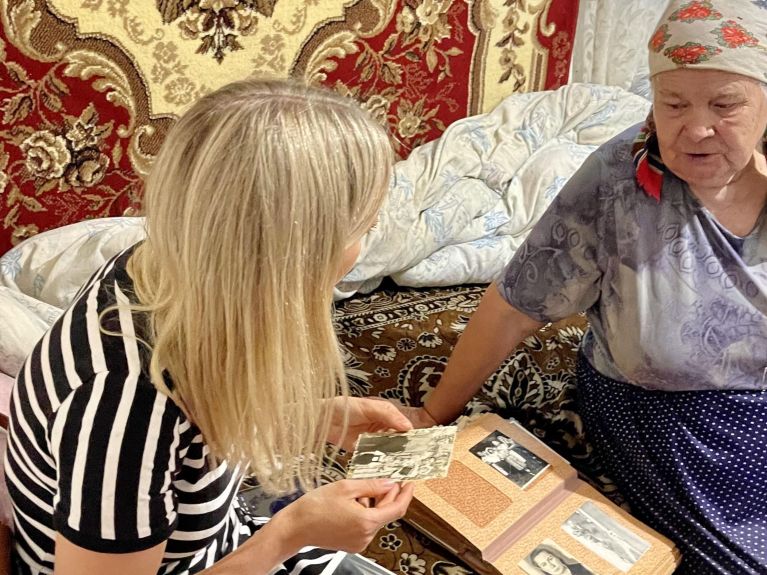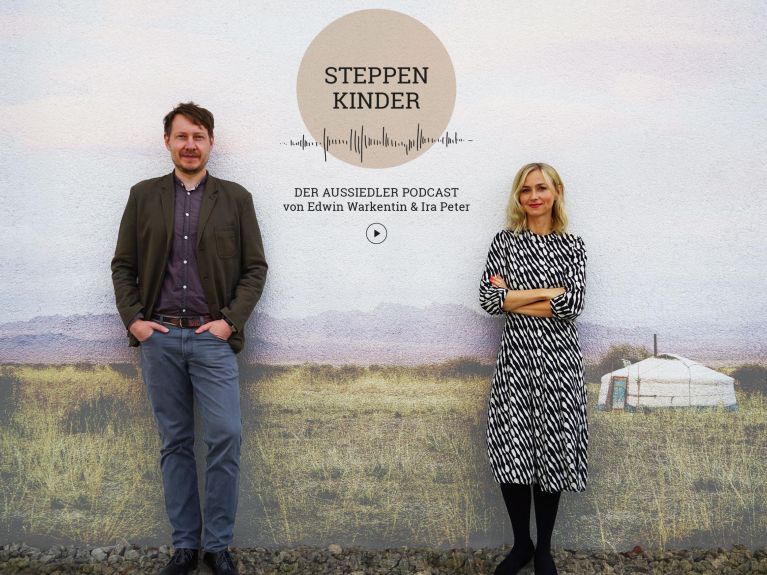“Impressive courage”
The German author Ira Peter, a former writer-in-residence in Odessa, talks about the Russian attacks on the city and her family ties to Ukraine.

Ms Peter, from June to October 2021 you were a writer-in-residence in Odessa on a scholarship provided by the German Culture Forum for Central and Eastern Europe. What is your view of the devastating Russian attacks that the city has suffered?
Thanks to the scholarship, I met numerous people and made lots of new friends in Odessa. Ever since the Russian invasion began on 24 February 2022, I have been frightened with them and with all the people in Ukraine. I’m impressed by their courage and fighting spirit. The attacks on Odessa are attacks not only on a Ukrainian city, but also on a multicultural microcosm. Through my encounters with various people in recent years, it has become clear to me that Russians also view the peaceful coexistence of all kinds of different cultures in the city as something very special.
You were born in Tselinograd (now renamed Astana) in Kazakhstan in 1983 and came to Germany in 1992 at the age of nine. Besides your time as writer-in-residence there, what links you to Ukraine?
My grandparents, on both my mother’s and my father’s sides, were Volhynian Germans who lived in the northwestern part of present-day Ukraine. They were deported to Kazakhstan in 1936. My parents did not feel particularly close ties to Ukraine, but for my grandparents it was always their homeland. I myself began in 2018 to establish personal ties to Ukraine. Ever since, I have been to the country repeatedly and among other things have organised media workshops for young Ukrainian journalists.

Through your media work in Germany, you have also been providing information about Ukraine for some time. Why is that important to you?
Ukraine, with its very rich culture and history, has long been seeking exchange with other European countries, so we would be missing out on valuable opportunities if we were to ignore that. Unfortunately, there was far too little interest in Ukraine before Russia began its war of aggression in February 2022 - that’s something I also noticed in my media work. But we shouldn’t only show an interest once a conflict has escalated. That’s true of numerous post-Soviet states. Last year for example I had the chance to travel to Armenia and Georgia for several weeks and pursue journalistic work there. We can support positive developments in these countries, such as strengthening democracy and freedom of expression, if we engage with them.
In Germany, you and Edwin Warkentin broadcast a podcast entitled “Steppenkinder” (Children of the Steppe), a project of the Kulturreferat für Russlanddeutsche (Cultural Department for Russian Germans) in Detmold. It tells the story of emigrants from countries of the former Soviet Union and provides general information about topics such as identity, remembrance culture and migration or integration experiences.
Our aim is to reduce prejudice and counter marginalisation. Even today, many Russian Germans in Germany still feel disadvantaged and left behind. Unfortunately, this all too often plays into the hands of right-wing populist politicians. Against this backdrop, we want our podcast to strengthen democracy in Germany, too. Besides the Russian Germans themselves, our podcast is also aimed at other people with a migrant background, such as those who have roots in Poland or Turkey. We all need to show greater interest in one another and come closer together.

Is this also intended to counter the Russian government’s propaganda?
Yes. With respect to Germany, Putin’s policies deliberately home in on the fact that Russian Germans feel slighted here and attempt for instance to influence sentiment among people via fake news, manipulative videos or memes. There is no doubt that Germany also made mistakes in the past, failing for example to recognise professional qualifications quickly enough. My mother for instance has a degree in business administration, but could not find a job commensurate with her qualifications in Germany. On the other hand, our family and numerous others received a wonderful welcome in Germany and were supported in all kinds of ways. Last but not least, we hope that our “Steppenkinder” podcast will improve the self-confidence of Russian Germans and encourage them to engage in exchange with others.